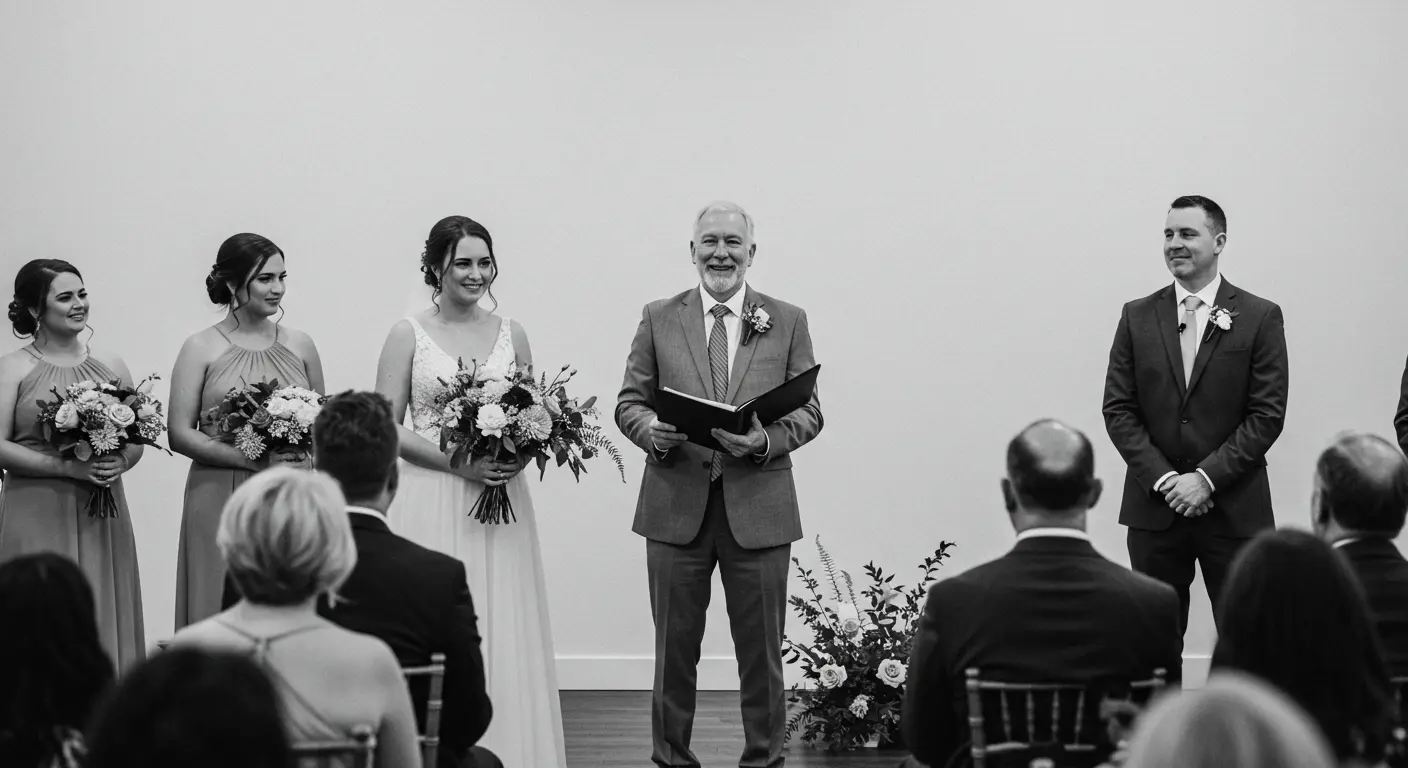The landscape of ceremonial celebrations is rapidly evolving, and non-denominational officiants are at the forefront of this change. Gone are the days when ceremonies were strictly bound by rigid traditions and defined religious practices. Today, people desire ceremonies that speak directly to their lifestyles, cultures, and personal beliefs. Non-denominational officiants, equipped through non denominational ordination, have become vital in navigating these changes. By offering flexible services, they facilitate events that honor the personal convictions and stories of the individuals involved.
This modern approach is a breath of fresh air for many who find the traditional constraints of religious ceremonies somewhat limiting. Non-denominational officiants break down these barriers, creating an inclusive space where values and traditions can intermingle freely. Flexibility in ceremony scripting allows for the incorporation of diverse elements, celebrating the uniqueness of the individuals being honored.
Why Choose a Non-Denominational Officiant?
Choosing a non-denominational officiant reflects a growing preference for flexibility and personalization in ceremonies. At its core, this option allows participants to blend familiar traditional elements with unique personal touches, crafting events that are truly bespoke. Studies and surveys indicate that tailored ceremonies lead to greater emotional resonance and memory retention among participants and guests alike.
Moreover, non-denominational officiants foster an atmosphere of inclusivity. In a multicultural world, families often come together from diverse backgrounds. An officiant who can seamlessly incorporate these varied cultural and religious tones enhances the sense of unity and celebration. By focusing on what unites rather than what divides, these ceremonies become memorable milestones that everyone can cherish, leaving a lasting emotional impact.
Key Qualities of a Great Officiant
What sets a great officiant apart? While each individual brings their own special touch, certain qualities are universally valued. Empathy is perhaps the most significant, enabling officiants to connect deeply with those they serve. By understanding the values and emotions of the participants, officiants can tailor the ceremony to resonate warmly with everyone involved.
Empathy and Understanding
Empathy allows officiants to understand and integrate the unique stories and sentiments of each participant. This quality ensures that the ceremonies they conduct are not only personalized but deeply meaningful, reflecting the true spirit of those being celebrated.
Beyond empathy, adaptability and strong communication skills ensure that an officiant can articulate the event’s narrative clearly and engagingly. A proficient officiant should be able to guide participants and audiences through the ceremony with poise and confidence, leaving everyone with a sense of fulfillment.
The Growing Popularity of Personalized Ceremonies
The demand for personalized ceremonies is on the rise. In a world that increasingly values individuality and personal expression, traditional one-size-fits-all ceremonies are giving way to unique celebrations tailored to resonate with those involved. Many couples today prioritize personal values and shared experiences over rigid adherence to traditional ceremony structures.
How to Find the Right Officiant for Your Ceremony
Finding the right officiant involves reflection on what you envision for your ceremony. Factors to consider include religious or cultural preferences, the desired tone of the ceremony, and any unique elements or rituals you wish to incorporate. Begin your search by seeking recommendations from friends or family members who have had positive experiences with officiants.
Additionally, online reviews and specialized websites provide valuable insights into potential officiants’ styles and strengths. Once you identify a few candidates, set up interviews to discuss their approaches and experience. A brief conversation can often reveal whether an officiant aligns with your vision and can bring it to life effectively and meaningfully.
Training and Resources for Aspiring Officiants
Aspiring officiants have access to numerous training programs and resources designed to prepare them for their roles. Comprehensive courses often cover important topics such as ceremonial structure, public speaking, and legal requirements. These programs equip officiants with the skills needed to craft and perform engaging, respectful ceremonies.
Moreover, online platforms and communities offer aspiring officiants advice, support, and networking opportunities. Such resources can be invaluable for those seeking to learn from experienced professionals and gain diverse perspectives on officiating varied types of ceremonies.
Real-Life Success Stories
Real-life success stories of non-denominational officiants underscore their profound impact. Consider the story of an officiant who facilitated a bilingual ceremony, seamlessly blending cultural cues and languages to celebrate a couple’s unique heritage. Another officiant’s success involved integrating personal anecdotes and a custom poem into a wedding, which became a cherished memory for the family involved.
These stories, among many, highlight the adaptability and creativity non-denominational officiants bring to ceremonies. Their ability to honor diverse backgrounds and create cohesive, touching narratives leaves lasting impressions.
Conclusion
As societal norms continue to embrace inclusivity and personalization, the role of non-denominational officiants is poised for further expansion. These officiants are redefining the landscape of ceremonies, offering flexibility and creativity previously unheard of in structured rituals.
Whether for weddings, birth celebrations, or memorials, the future of non-denominational ceremonies rests on the principles of individuality, respect for diversity, and deep personal resonance. As such, officiants will remain key figures in helping individuals and families celebrate their unique stories and milestones with grace and authenticity.
In this evolving environment, non-denominational officiants will continue to act as bridges, connecting people from all walks of life to meaningful traditions that reflect their beliefs and values. By embracing a wide range of customs and practices, these officiants offer a deeply personal touch, allowing for ceremonies that are both inclusive and tailored to the participants. As more people seek ceremonies that feel true to themselves, the demand for these flexible and compassionate guides is only set to grow.






